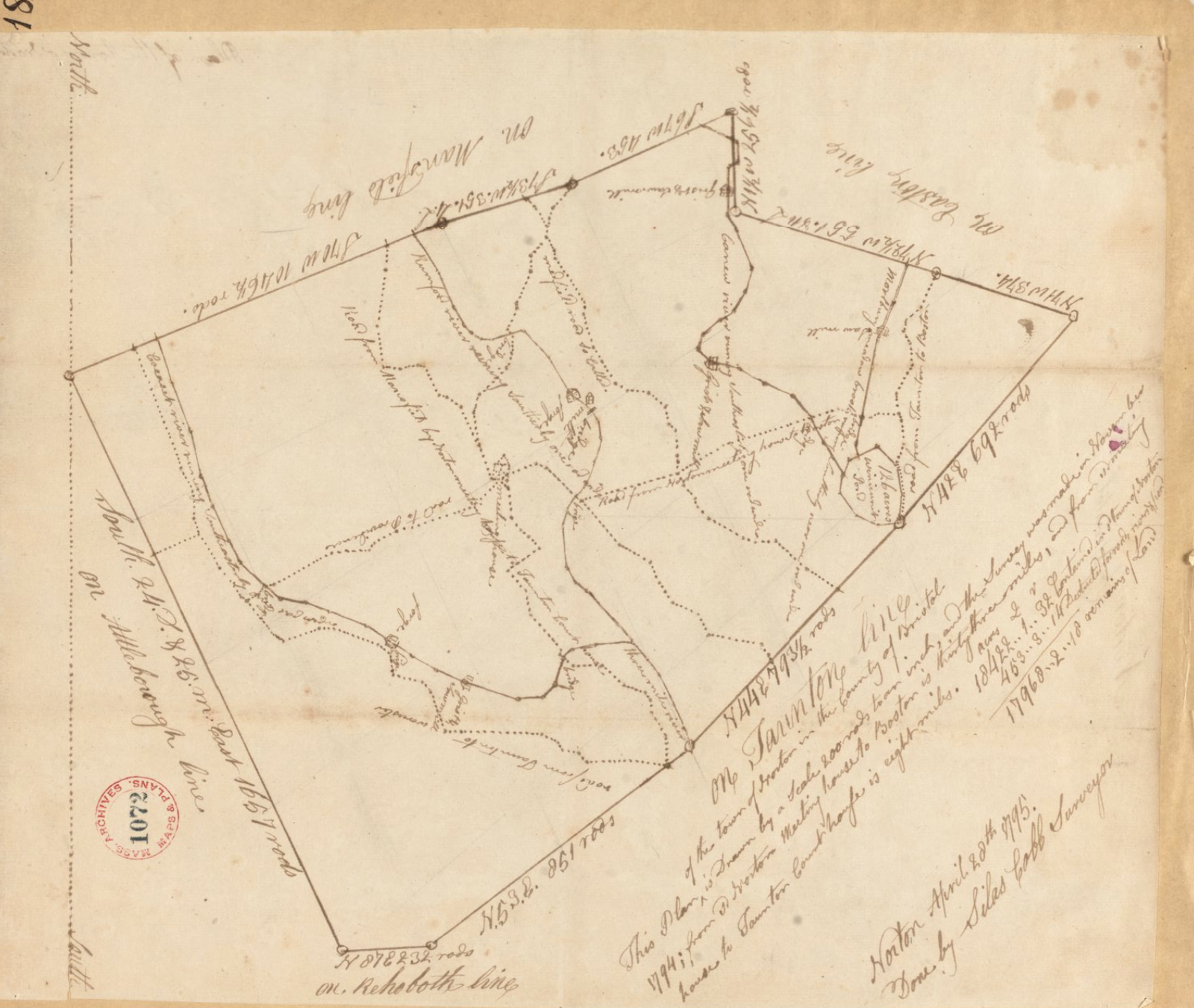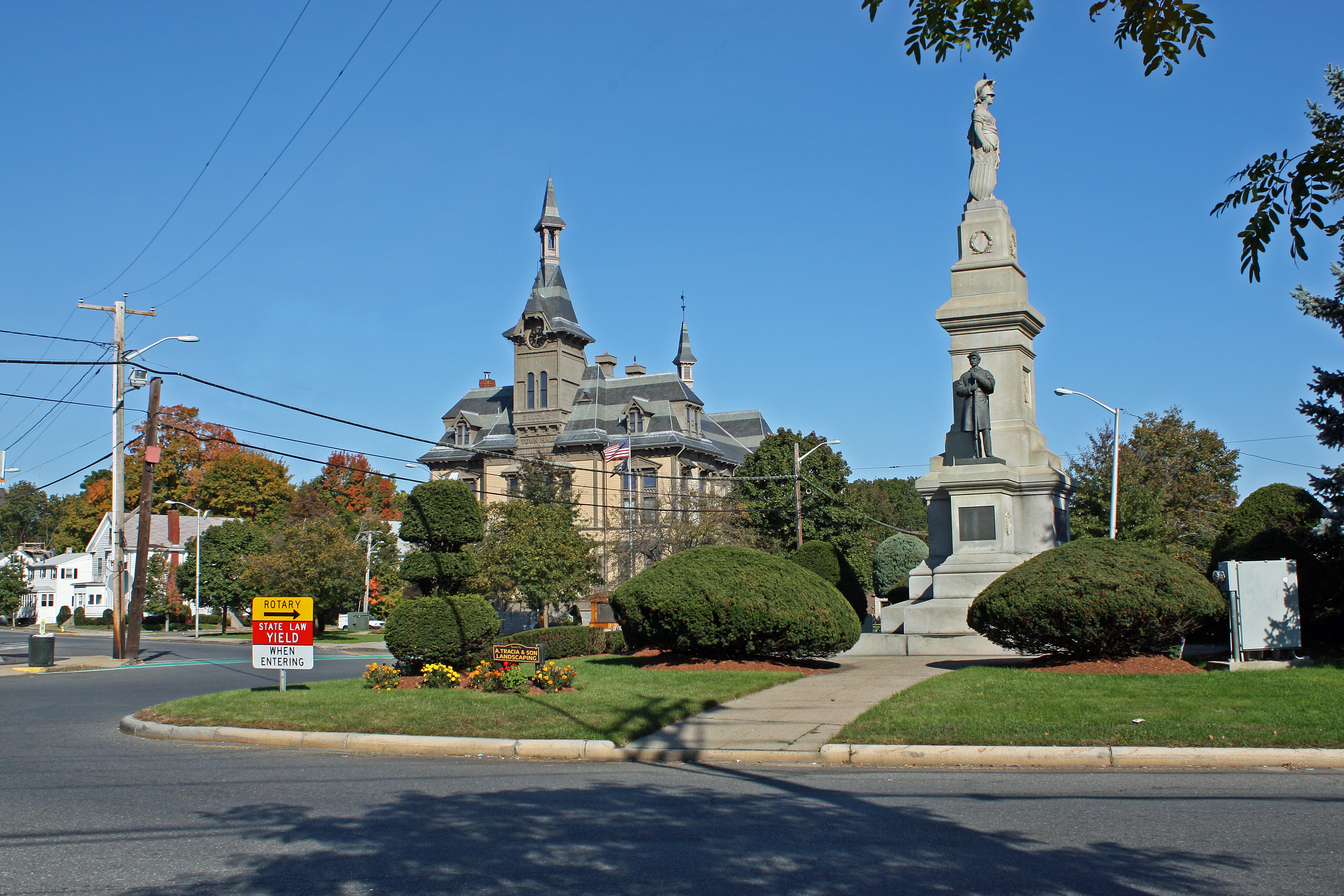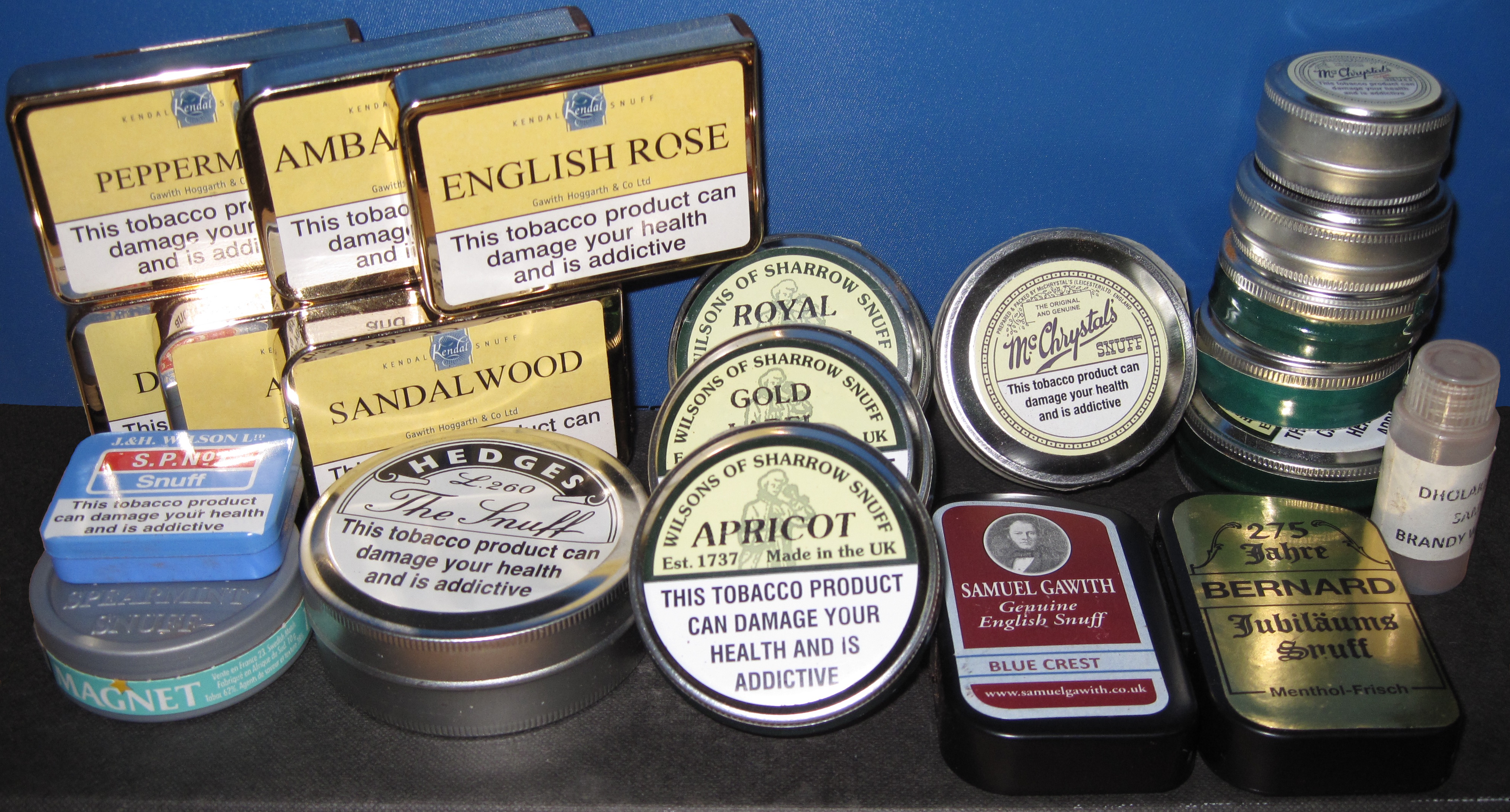|
Jonathan Makepeace
Jonathan Makepeace also known as Major Makepeace was an American businessman and political figure who manufactured snuff and held political office in Saugus, Massachusetts. Early life Makepeace was born on May 7, 1774, in Norton, Massachusetts. On July 10, 1799, he married Anna Nye in her hometown of Hardwick, Massachusetts. They had four daughters, Peris Nye (1801–1822), Ann Maria (1803–1825), Mary Ann (1805–1826), and Deborah Briggs (1809–1835) and two sons Jonathan Briggs (1802–1803) and Jonathan Jr. (1815–1836). Business In 1792, Makepeace's uncle, George Makepeace, purchased an abandoned mill on the Saugus River. In 1797 Jonathan Makepeace began manufacturing chocolate at the mill. The chocolate business was later taken over by Amariah Childs. In 1798, Makepeace took over his uncle's snuff business, which he continued until 1844. Makepeace was known for the attention he gave to his product, which became known nationwide. Politics In 1814, Makepeace was a signer ... [...More Info...] [...Related Items...] OR: [Wikipedia] [Google] [Baidu] |
Norton, Massachusetts
Norton is a New England town, town in Bristol County, Massachusetts, Bristol County, Massachusetts, United States, and contains the villages of Norton Center, Massachusetts, Norton Center and Chartley, Massachusetts, Chartley. The population was 19,202 at the 2020 United States Census, 2020 census. Home of Wheaton College (Massachusetts), Wheaton College, Norton hosts the Dell Technologies Championship, a golf tournament, tournament of the PGA Tour held annually on the Labor Day holiday weekend at the TPC Boston golf club. History Winnecunnet Lake was an ancient fishing, hunting, and camping site known for thousands of years by Indigenous Pokanoket and Mattakeeset families. In the old days before dams and other obstructions, rivers running gently into the lake and swamplands around it provided canoe routes north to Lake Massapoag and south to the Taunton River. Growing tall in the lowlands along two of Norton’s main waterways—Wading and Rumford—- and continuing further a ... [...More Info...] [...Related Items...] OR: [Wikipedia] [Google] [Baidu] |
Massachusetts Constitutional Convention Of 1820–1821
The Massachusetts Constitutional Convention of 1820–1821 met in order to consider amendments to the Constitution of Massachusetts. It resulted in the adoption of the first nine amendments. Several other proposals were rejected. Background Modernization and demographic changes put severe strain on the system set up in the 1780 constitution. New England was the epicenter of the American Industrial Revolution, and urbanization in mill towns and coastal ports led to cities several times larger than seen before in Massachusetts. Apportionment of the General Court was one of the biggest issues leading to calls for a convention. Under the old constitution all towns in Massachusetts were entitled to a representative, with the most populous towns entitled to a few extra representatives. The growth of larger urban towns like Boston caused greater dis-proportionality within this system, and the continual increase in the number of towns in the western part of the state meant the legisla ... [...More Info...] [...Related Items...] OR: [Wikipedia] [Google] [Baidu] |
People From Norton, Massachusetts
A person ( : people) is a being that has certain capacities or attributes such as reason, morality, consciousness or self-consciousness, and being a part of a culturally established form of social relations such as kinship, ownership of property, or legal responsibility. The defining features of personhood and, consequently, what makes a person count as a person, differ widely among cultures and contexts. In addition to the question of personhood, of what makes a being count as a person to begin with, there are further questions about personal identity and self: both about what makes any particular person that particular person instead of another, and about what makes a person at one time the same person as they were or will be at another time despite any intervening changes. The plural form "people" is often used to refer to an entire nation or ethnic group (as in "a people"), and this was the original meaning of the word; it subsequently acquired its use as a plural form of ... [...More Info...] [...Related Items...] OR: [Wikipedia] [Google] [Baidu] |
Members Of The Massachusetts House Of Representatives
Member may refer to: * Military jury, referred to as "Members" in military jargon * Element (mathematics), an object that belongs to a mathematical set * In object-oriented programming, a member of a class ** Field (computer science), entries in a database ** Member variable, a variable that is associated with a specific object * Limb (anatomy), an appendage of the human or animal body ** Euphemism for penis * Structural component of a truss, connected by nodes * User (computing), a person making use of a computing service, especially on the Internet * Member (geology), a component of a geological formation * Member of parliament * The Members, a British punk rock band * Meronymy, a semantic relationship in linguistics * Church membership, belonging to a local Christian congregation, a Christian denomination and the universal Church * Member, a participant in a club or learned society A learned society (; also learned academy, scholarly society, or academic association) is an ... [...More Info...] [...Related Items...] OR: [Wikipedia] [Google] [Baidu] |
Businesspeople In The Tobacco Industry
A businessperson, businessman, or businesswoman is an individual who has founded, owns, or holds shares in (including as an angel investor) a private-sector company. A businessperson undertakes activities (commercial or industrial) for the purpose of generating cash flow, sales, and revenue by using a combination of human, financial, intellectual, and physical capital with a view to fueling economic development and growth. History Prehistoric period: Traders Since a "businessman" can mean anyone in industry or commerce, businesspeople have existed as long as industry and commerce have existed. "Commerce" can simply mean "trade", and trade has existed through all of recorded history. The first businesspeople in human history were traders or merchants. Medieval period: Rise of the merchant class Merchants emerged as a "class" in medieval Italy (compare, for example, the Vaishya, the traditional merchant caste in Indian society). Between 1300 and 1500, modern accoun ... [...More Info...] [...Related Items...] OR: [Wikipedia] [Google] [Baidu] |
1850 Deaths
Year 185 ( CLXXXV) was a common year starting on Friday (link will display the full calendar) of the Julian calendar. At the time, it was known as the Year of the Consulship of Lascivius and Atilius (or, less frequently, year 938 ''Ab urbe condita''). The denomination 185 for this year has been used since the early medieval period, when the Anno Domini calendar era became the prevalent method in Europe for naming years. Events By place Roman Empire * Nobles of Britain demand that Emperor Commodus rescind all power given to Tigidius Perennis, who is eventually executed. * Publius Helvius Pertinax is made governor of Britain and quells a mutiny of the British Roman legions who wanted him to become emperor. The disgruntled usurpers go on to attempt to assassinate the governor. * Tigidius Perennis, his family and many others are executed for conspiring against Commodus. * Commodus drains Rome's treasury to put on gladiatorial spectacles and confiscates property to suppor ... [...More Info...] [...Related Items...] OR: [Wikipedia] [Google] [Baidu] |
1774 Births
Events January–March * January 21 – Mustafa III, Sultan of the Ottoman Empire, dies and is succeeded by his brother Abdul Hamid I. * January 27 ** An angry crowd in Boston, Massachusetts seizes, tars, and feathers British customs collector and Loyalist John Malcolm, for striking a boy and a shoemaker, George Hewes, with his cane. ** British industrialist John Wilkinson patents a method for boring cannon from the solid, subsequently utilised for accurate boring of steam engine cylinders. * February 3 – The Privy Council of Great Britain, as advisors to King George III, votes for the King's abolition of free land grants of North American lands. Henceforward, land is to be sold at auction to the highest bidder. * February 6 – France's Parliament votes a sentence of civil degradation, depriving Pierre Beaumarchais of all rights and duties of citizenship. * February 7 – The volunteer fire company of Trenton, New Jersey, predecessor to the paid Trenton Fire ... [...More Info...] [...Related Items...] OR: [Wikipedia] [Google] [Baidu] |
Saugus River
The Saugus River is a river in Massachusetts. The river is long, drains a watershed of approximately , and passes through Wakefield, Lynnfield, Saugus, and Lynn as it meanders east and south from its source in Lake Quannapowitt in Wakefield (elevation 90 feet) to its mouth in Broad Sound. It has at least eight tributaries: the Mill River; Bennets Pond Brook; the Pines River; Hawkes Brook; Crystal Pond Brook; Beaver Dam Brook; Strawberry Brook; and Shute Brook. Although Native Americans called the river ''Aboutsett'' ("winding stream"), European settlers first called it the River at Saugus, where ''Saugus'' (possibly a native word for "long") arguably named the beach running from Swampscott to Revere (there are competing theories as to the origin of the word "Saugus"). In early European times, alewives and bass were harvested from 1632 onwards. The Saugus Iron Works Saugus may refer to: Places * Saugus, Massachusetts, U.S. * Saugus, Santa Clarita, California, U.S., named ... [...More Info...] [...Related Items...] OR: [Wikipedia] [Google] [Baidu] |
Saugus, Massachusetts
Saugus is a town in Essex County, Massachusetts, United States, in the Greater Boston area. The population was 28,619 at the 2020 census. Saugus is known as the site of the first integrated iron works in North America. History Native Americans inhabited the area around Saugus for thousands of years prior to the arrival of European settlers in the 1620s. At the time of European arrival, the Naumkeag, also known as Pawtucket, under the leadership of Montowampate were based near present day Saugus and controlled land extending from what is now Boston to the Merrimack River. English settlers took the name ''Sagus'' or ''Saugus'' from the Pawtucket word for "outlet," and used the term to refer to the Saugus River and the region that includes the present day cities and towns of Swampscott, Nahant, Lynn, Lynnfield, Reading, North Reading and Wakefield) which were later renamed Lin or Lynn in 1637, after King's Lynn in Norfolk, England. In 1646, the Saugus Iron Works, then called Ham ... [...More Info...] [...Related Items...] OR: [Wikipedia] [Google] [Baidu] |
Hardwick, Massachusetts
Hardwick is a town in Worcester County, Massachusetts, United States, about west of the city of Worcester. It had a population of 2,667 at the 2020 census. It includes the villages of Hardwick, Gilbertville, Wheelwright and Old Furnace. History Hardwick was first settled in 1737 and was officially incorporated in 1739, named in honor of Philip Yorke, Lord Hardwicke, an English nobleman. In 1762, General Timothy Ruggles, one of the leading Tories of New England, introduced the Hardwick Fair, now the oldest annual fair in the United States. During the late 1800s, Hardwick experienced an expansion of its manufacturing industry, textile and paper mills, both of which left the area by the 1930s. The town has retained its agricultural roots, a long-standing tradition in the region. Hardwick is the home of Eagle Hill School, founded in 1967. Geography and transportation According to the United States Census Bureau, the town has a total area of , of which is land and , or 5.51%, ... [...More Info...] [...Related Items...] OR: [Wikipedia] [Google] [Baidu] |
Snuff (tobacco)
Snuff is a smokeless tobacco made from finely ground or pulverized tobacco leaves. The Old Snuff House of Fribourg & Treyer at the Sign of the Rasp & Crown, No.34 James's Haymarket, London, S.W., 1720, 1920. Author: George Evens and Fribourg & Treyer. Publisher: Nabu Press, London, England. Reproduced 5 August 2010, It is inhaled or "sniffed" (alternatively sometimes written as "snuffed") into the nasal cavity, delivering a swift hit of nicotine and a lasting flavored scent (especially if flavoring has been blended with the tobacco). Traditionally, it is sniffed or inhaled lightly after a pinch of snuff is either placed onto the back surface of the hand, held pinched between thumb and index finger, or held by a specially made "snuffing" device. Snuff originated in the Americas and was in common use in Europe by the 17th century. Traditional snuff production consists of a lengthy, multi-step process, in tobacco snuff mills. The selected tobacco leaves are first subject to spe ... [...More Info...] [...Related Items...] OR: [Wikipedia] [Google] [Baidu] |

_1938.jpg)
.jpg)

